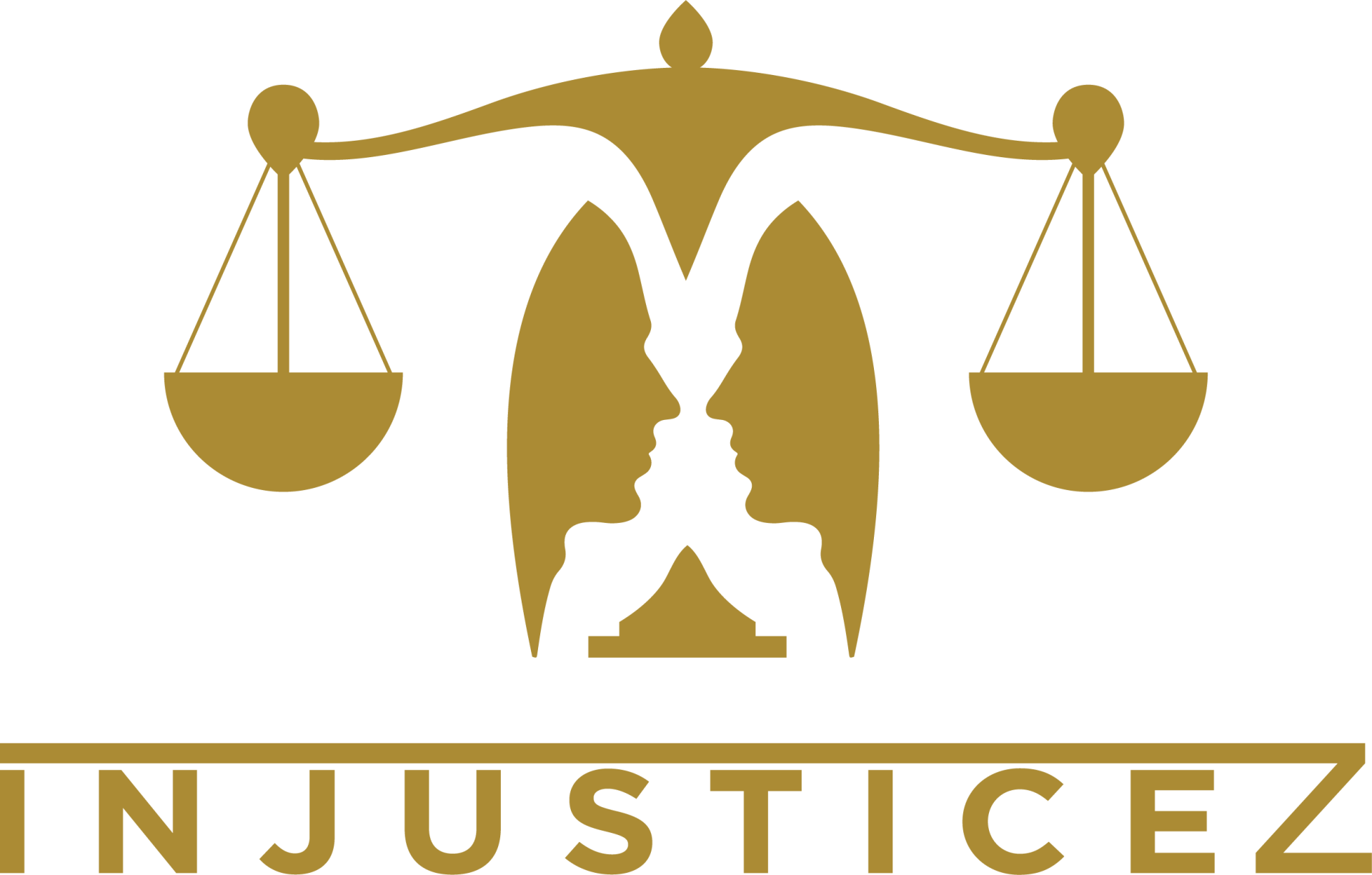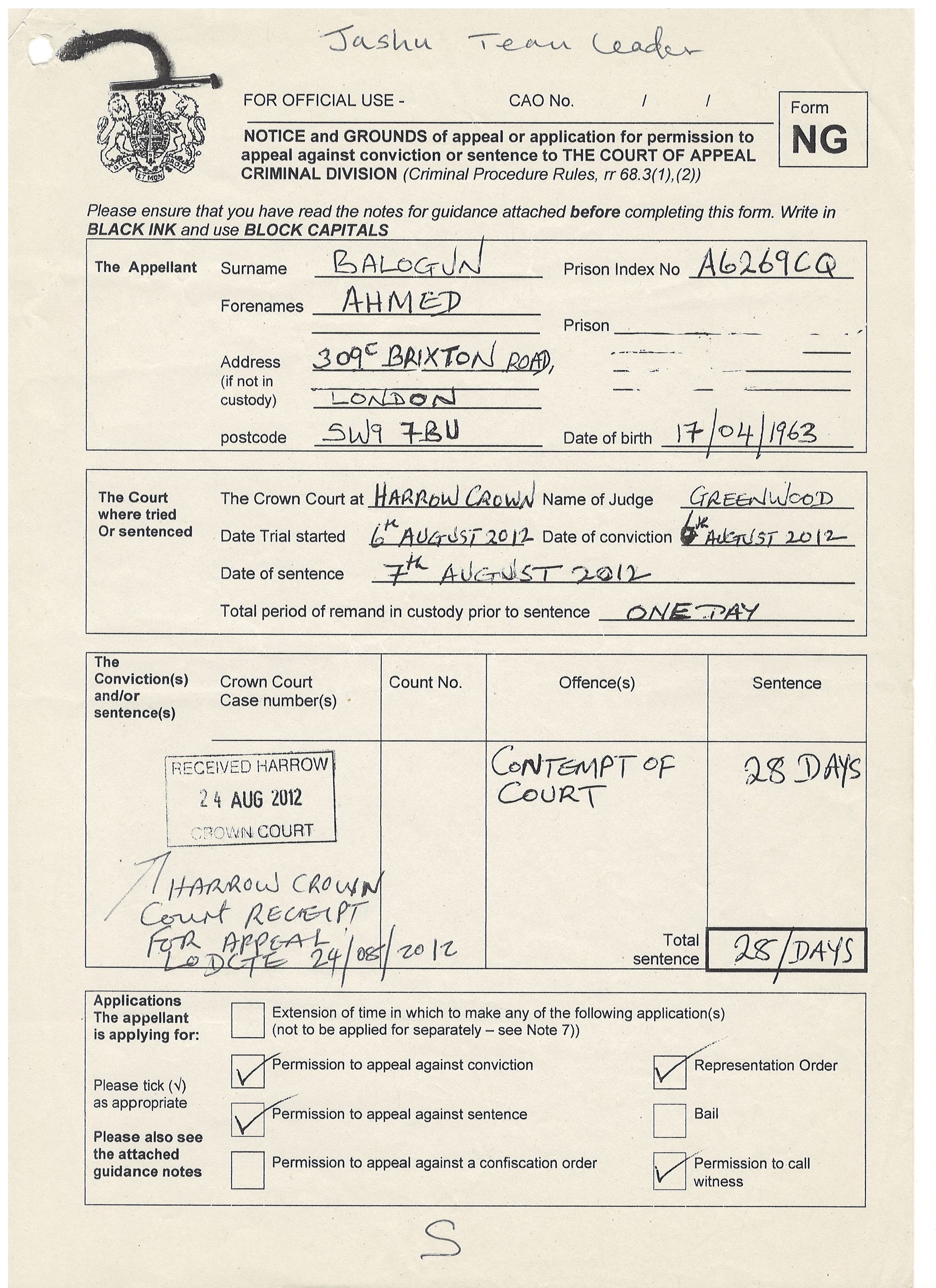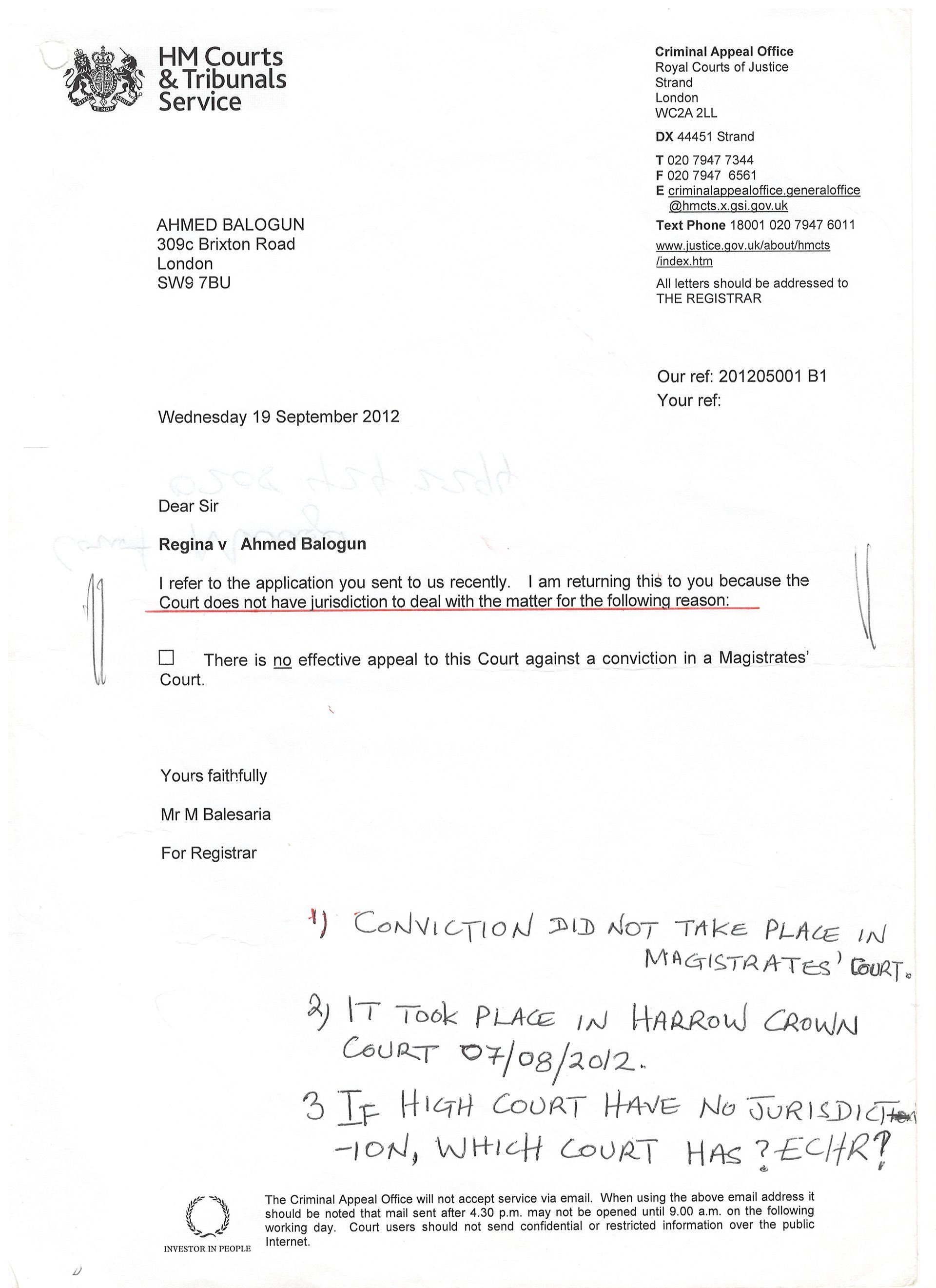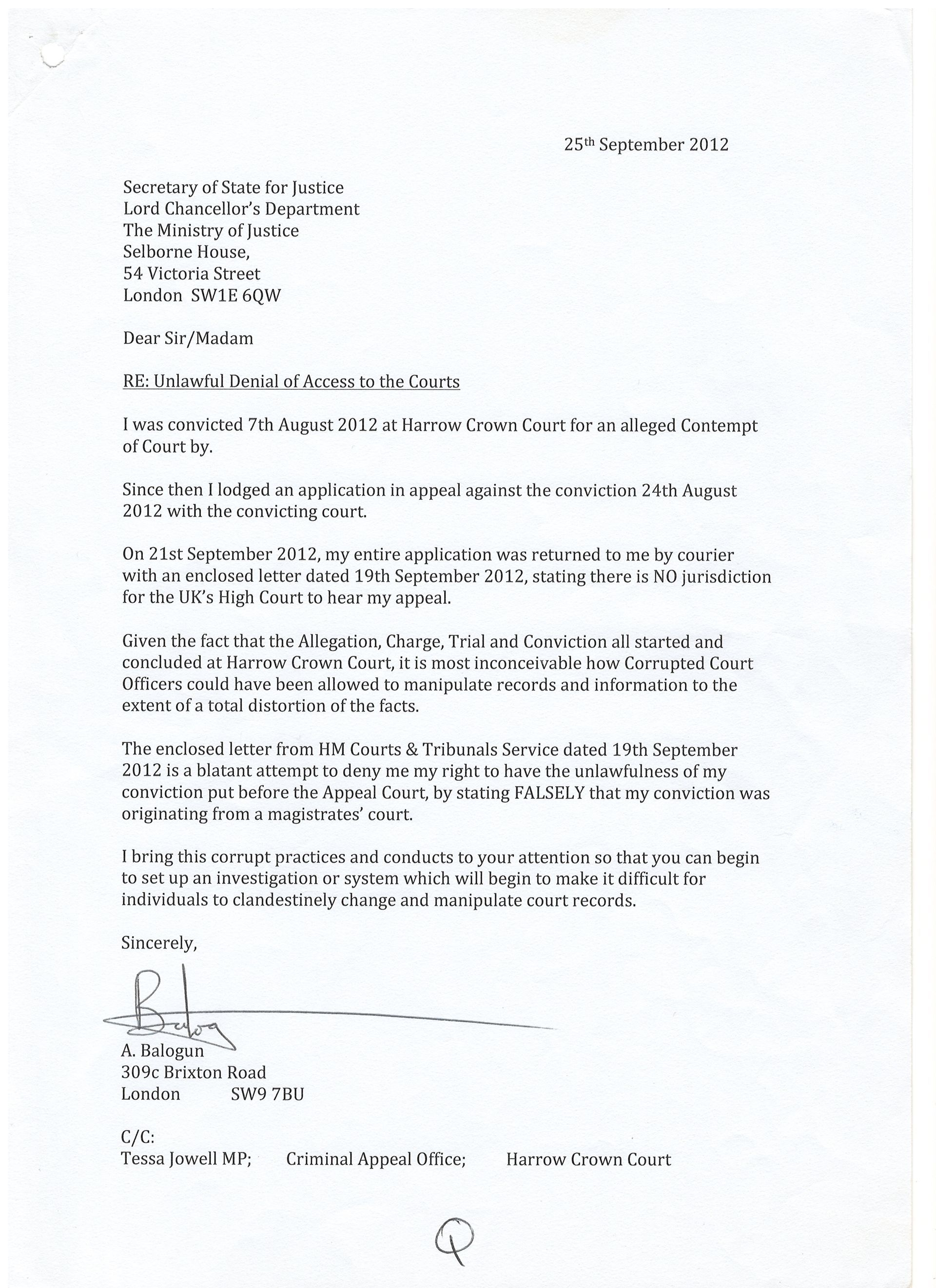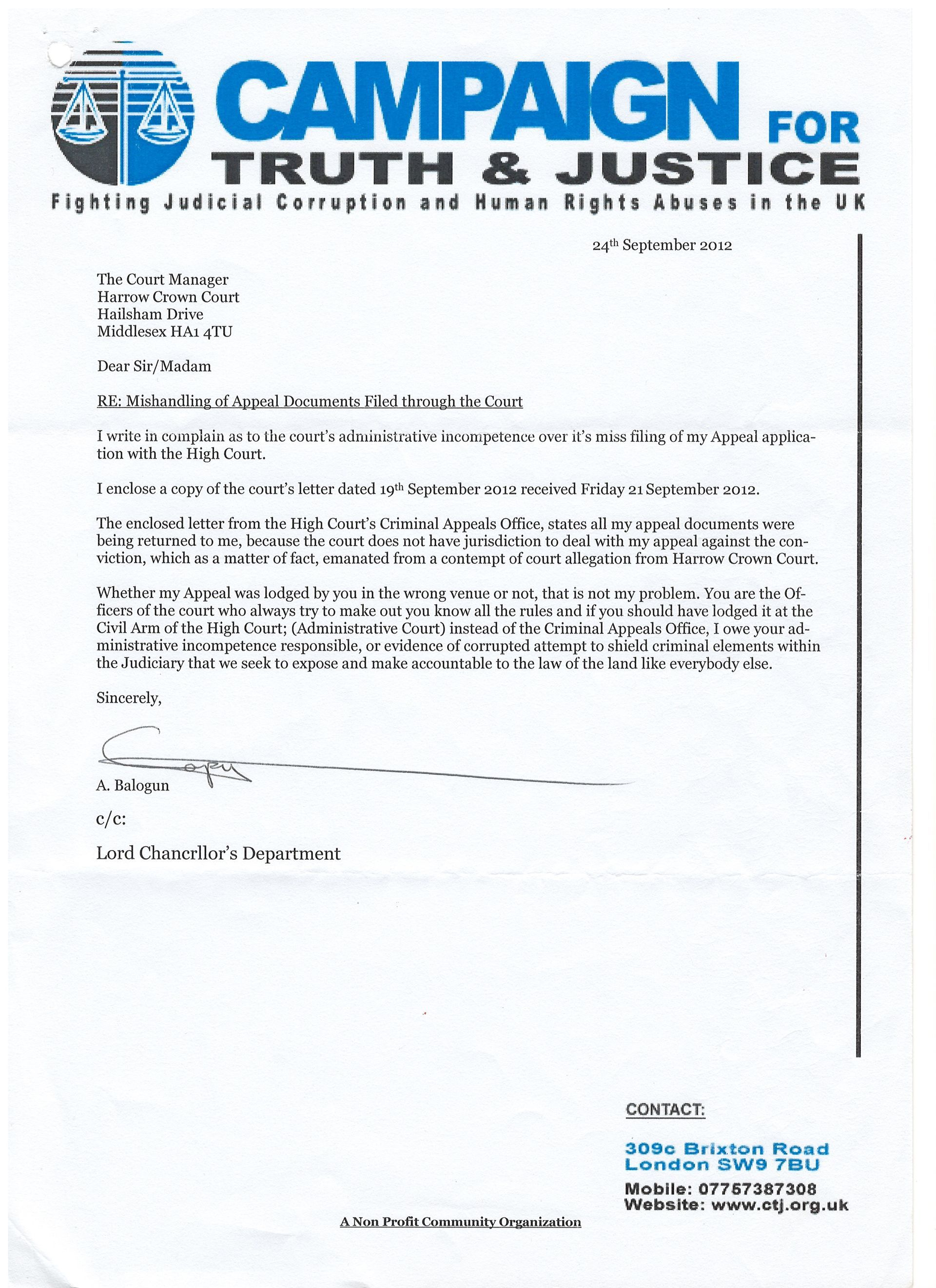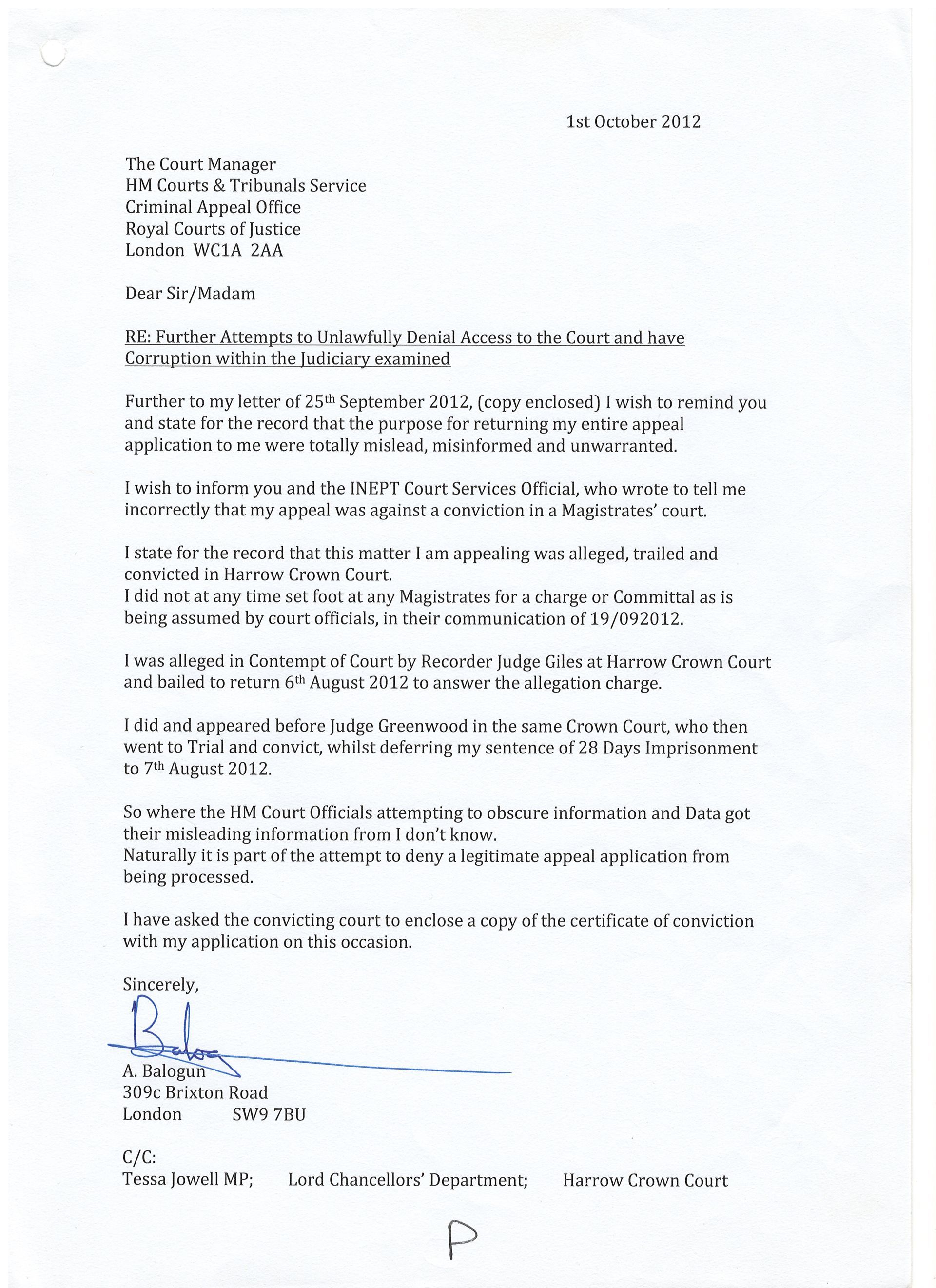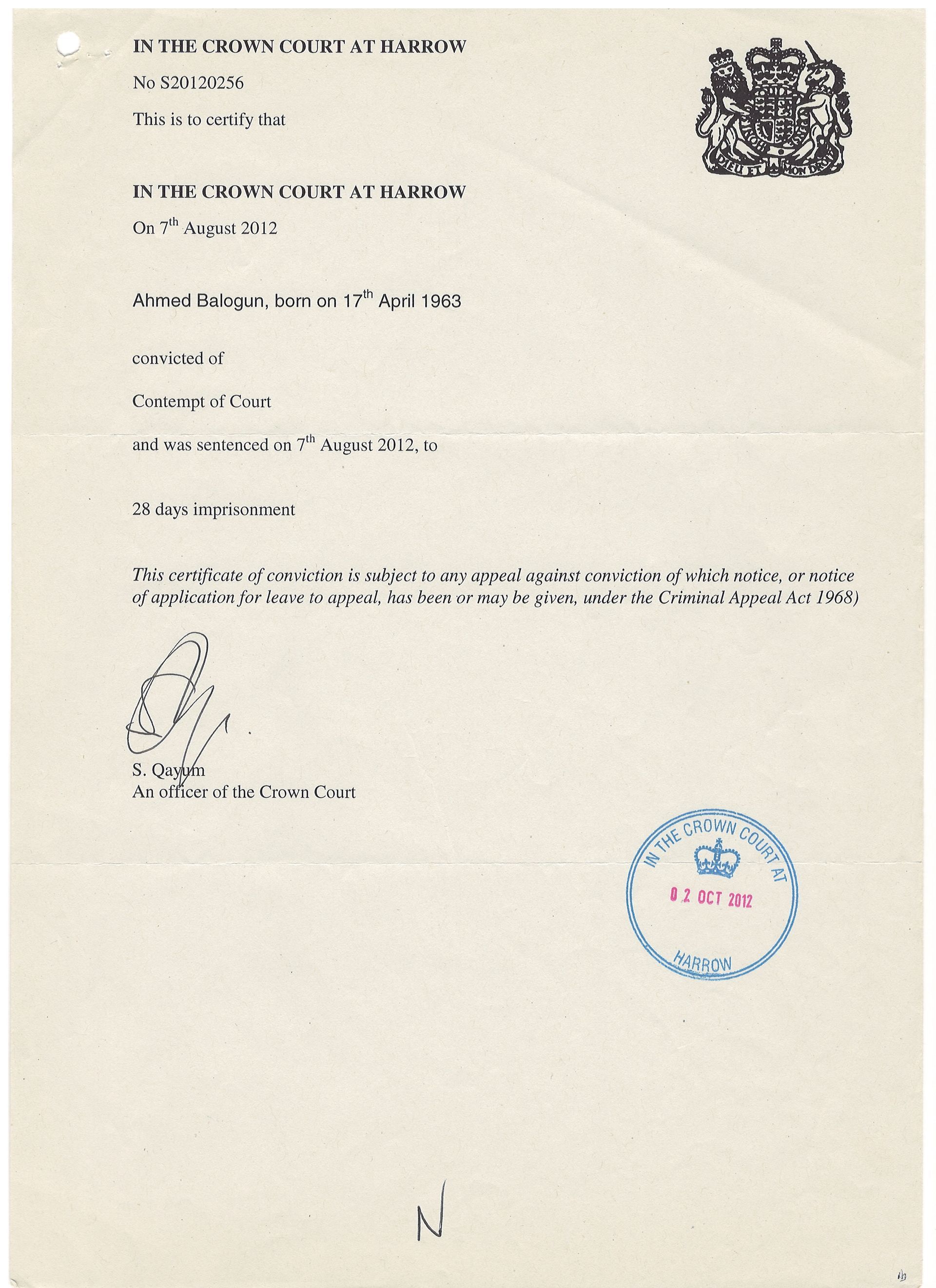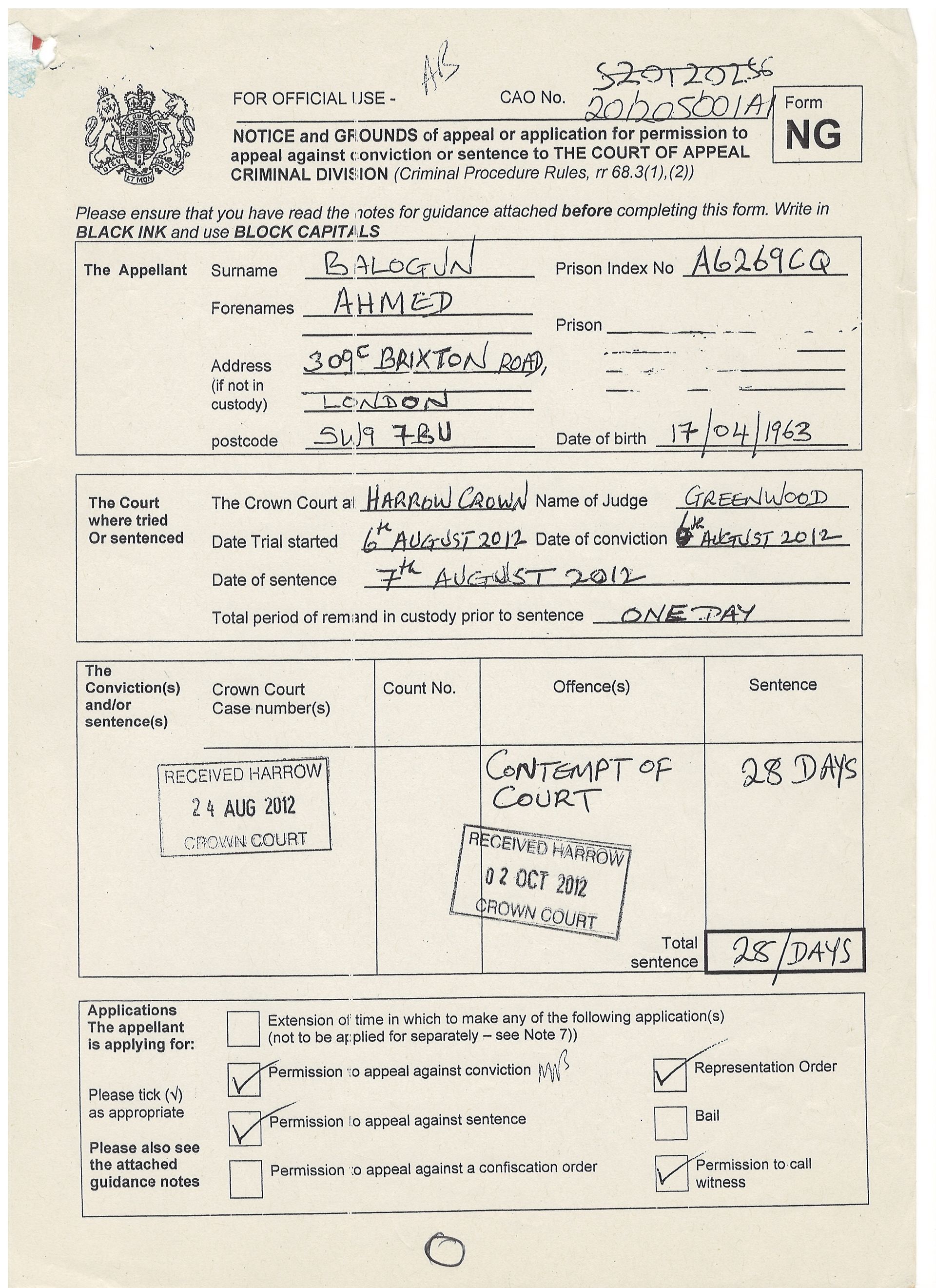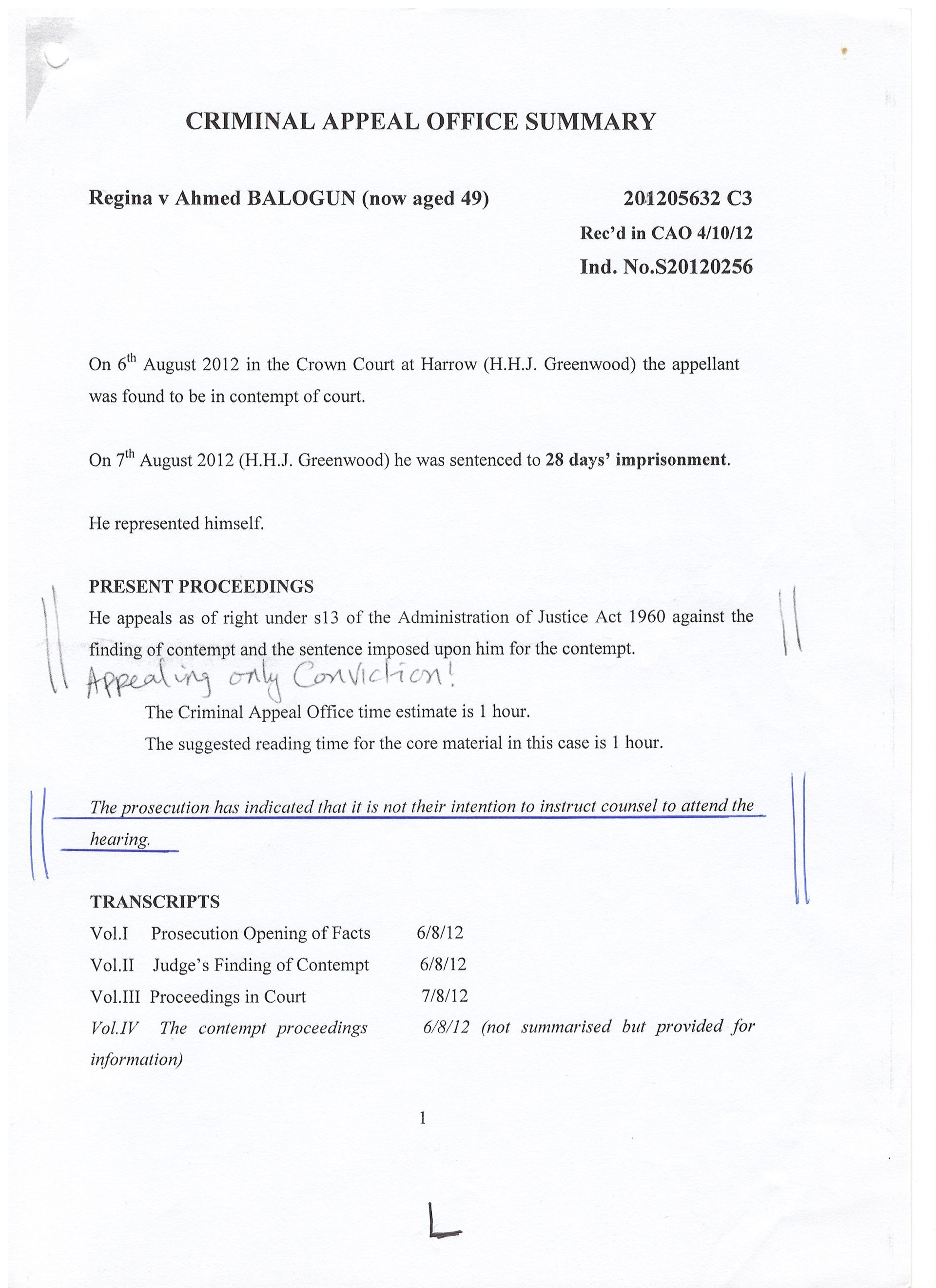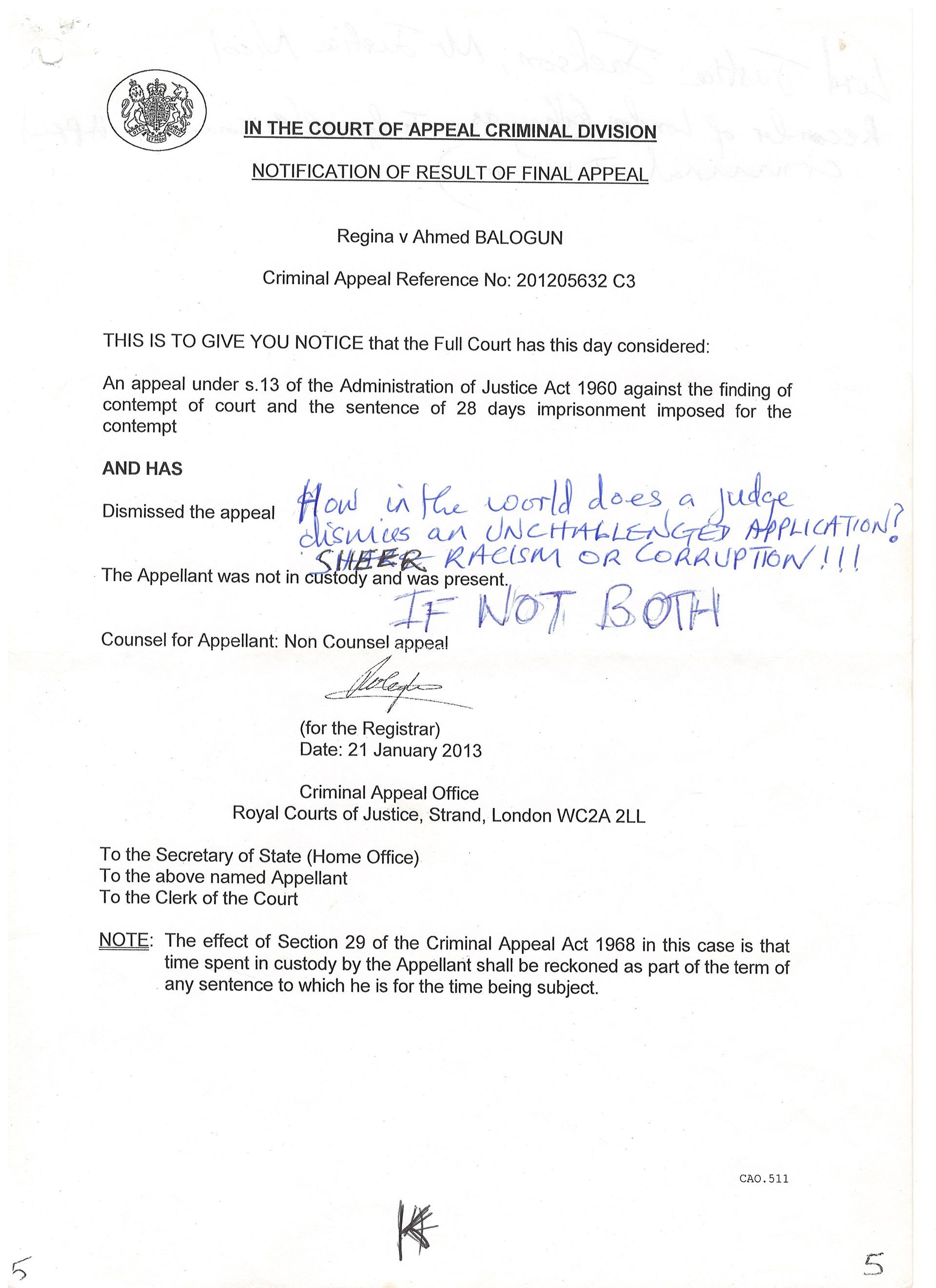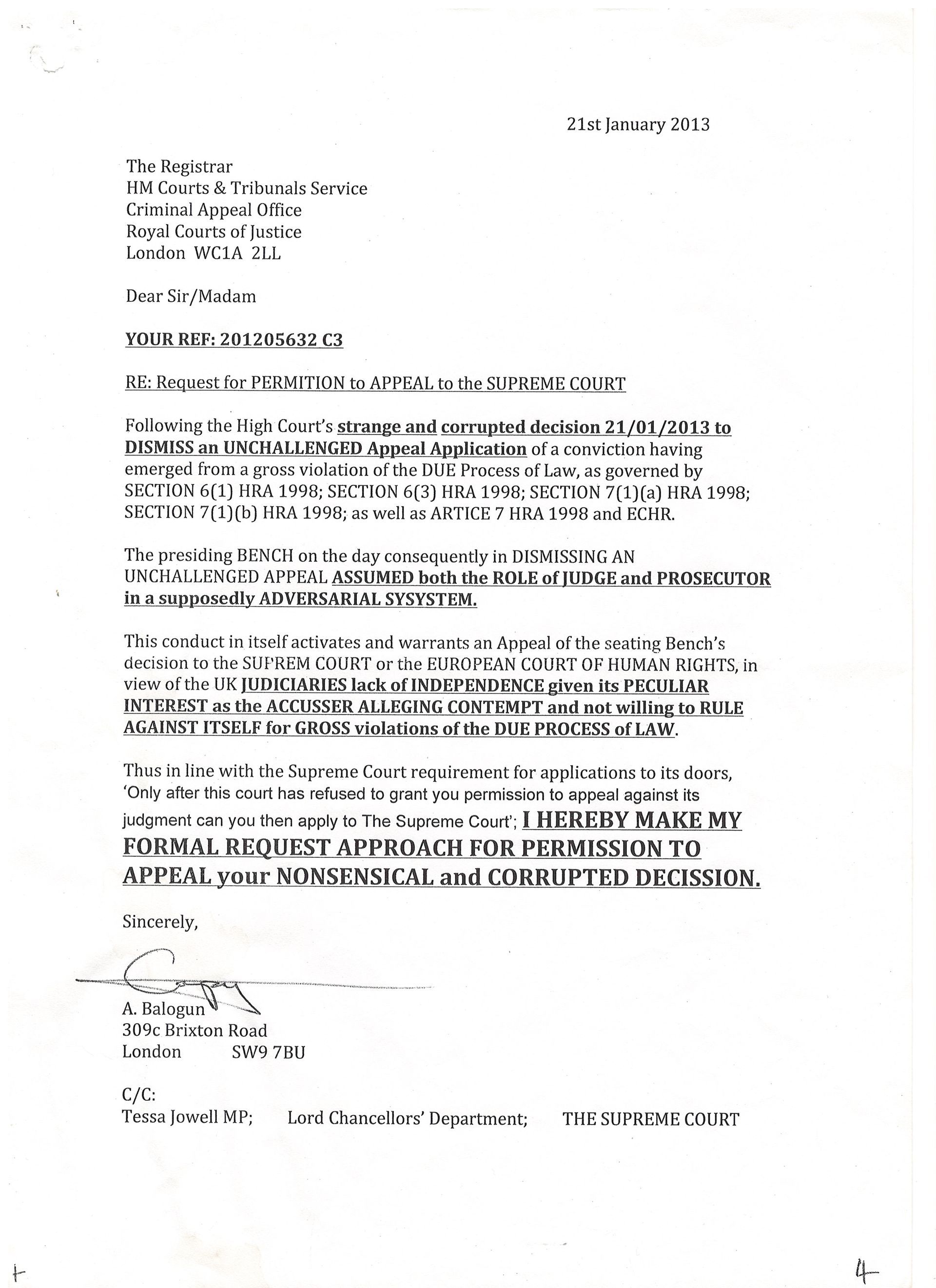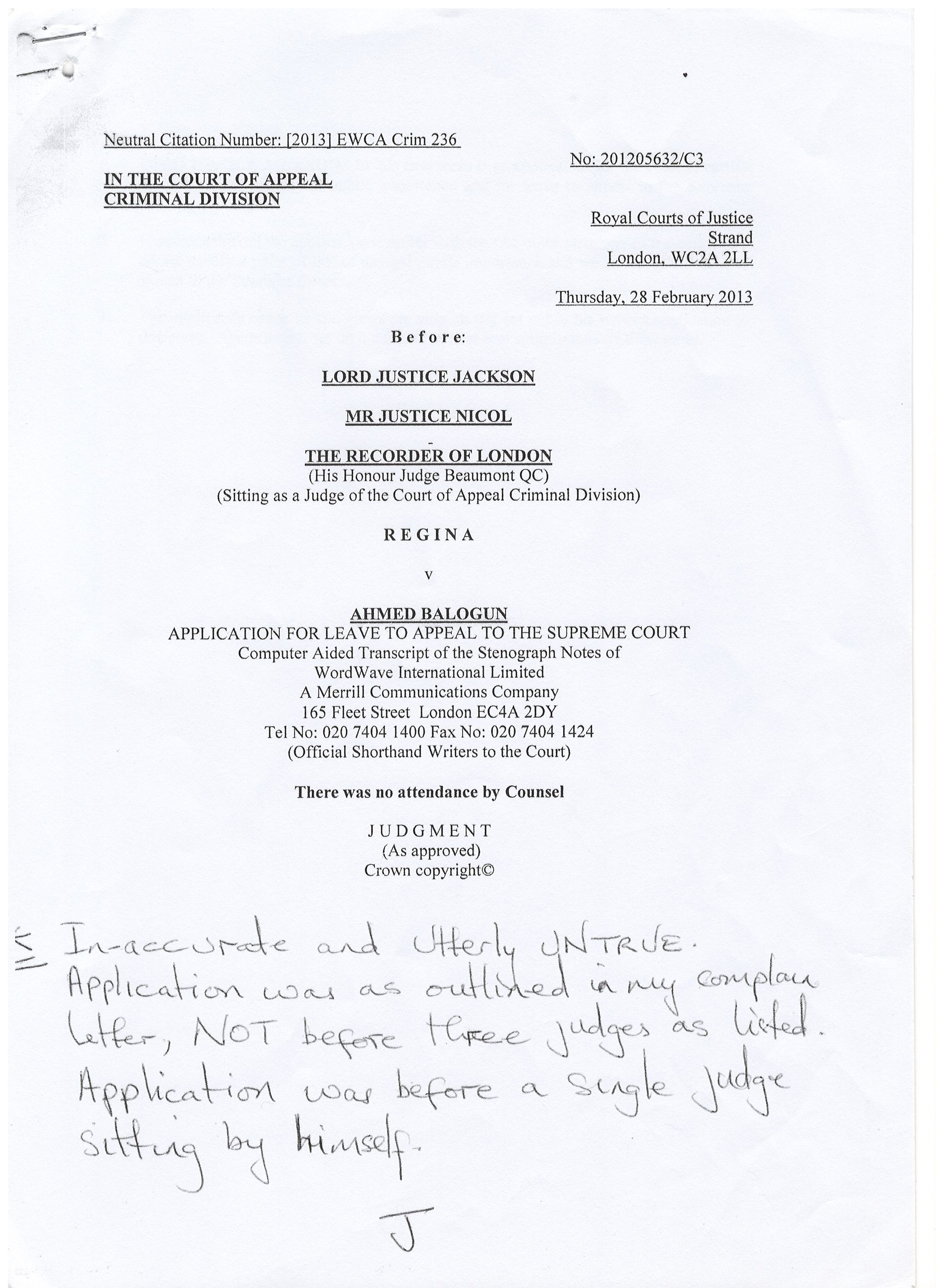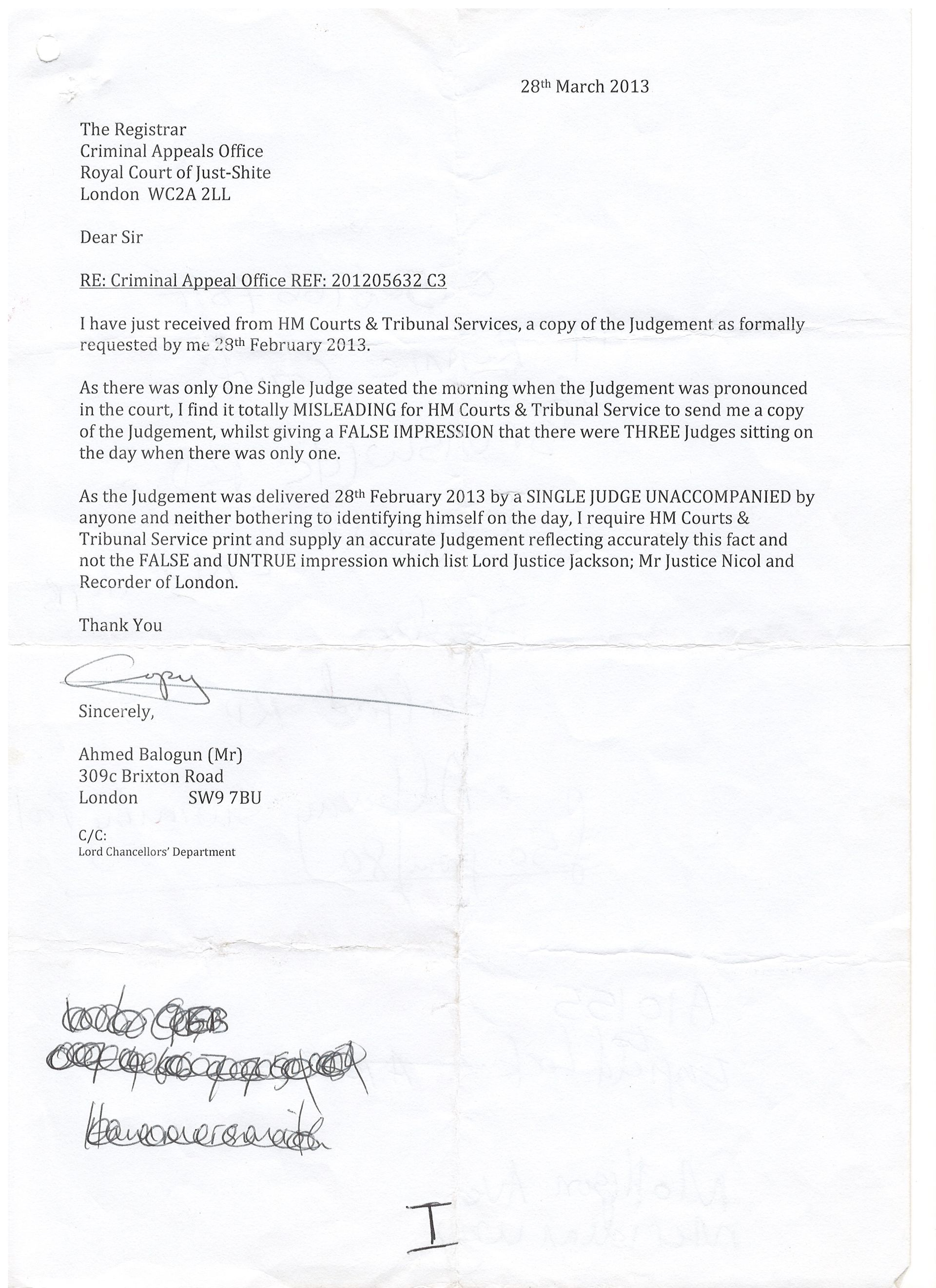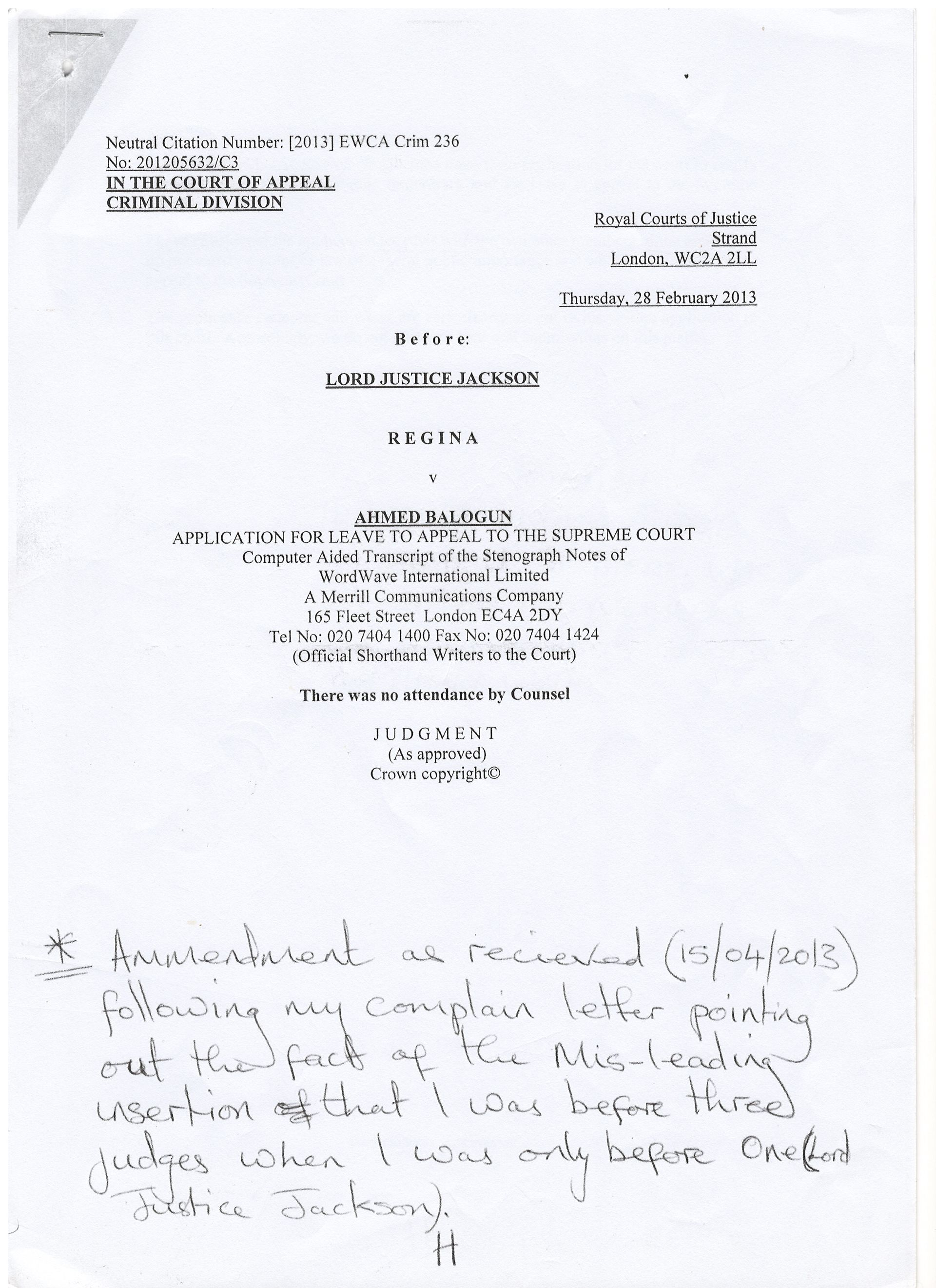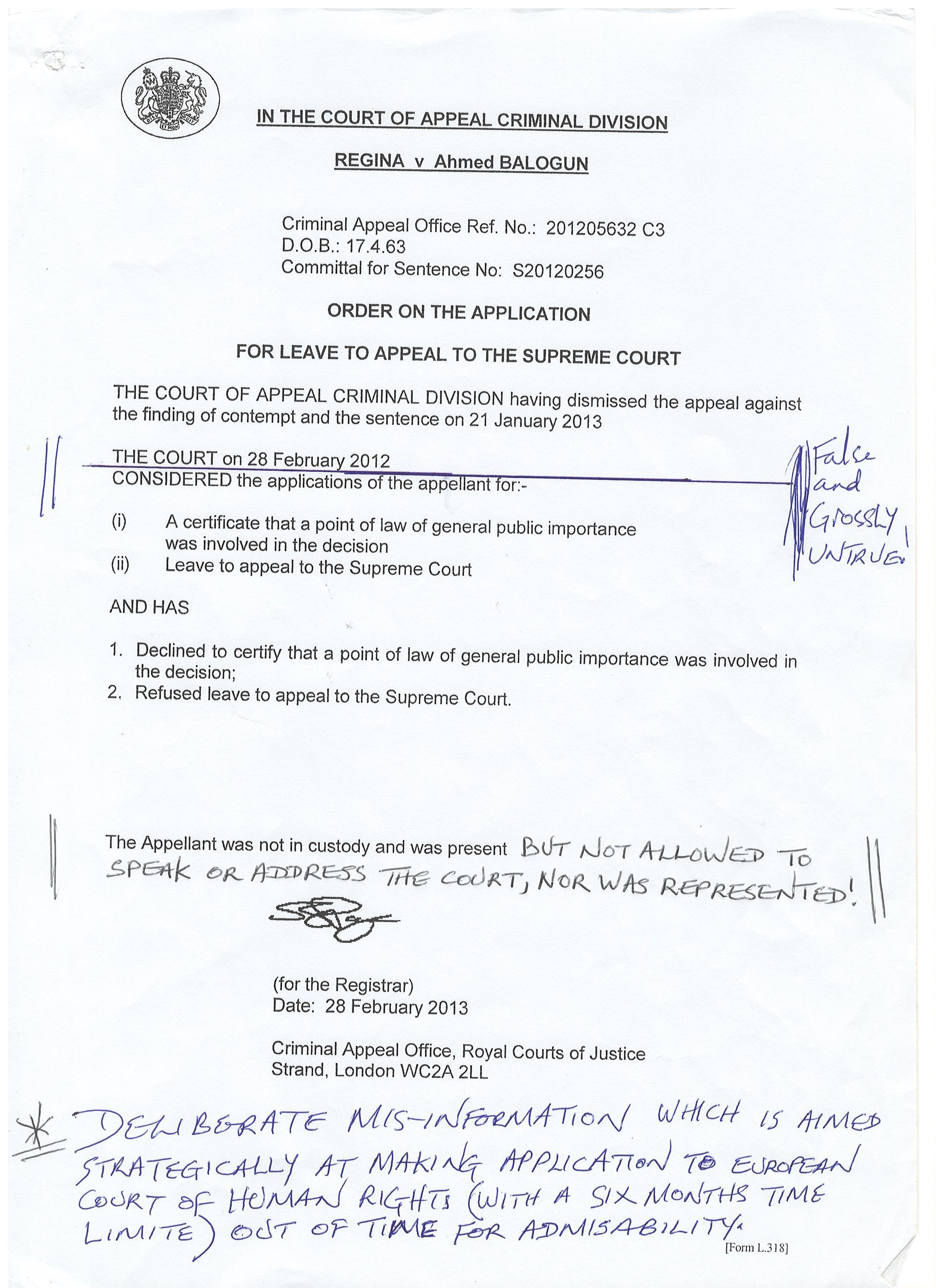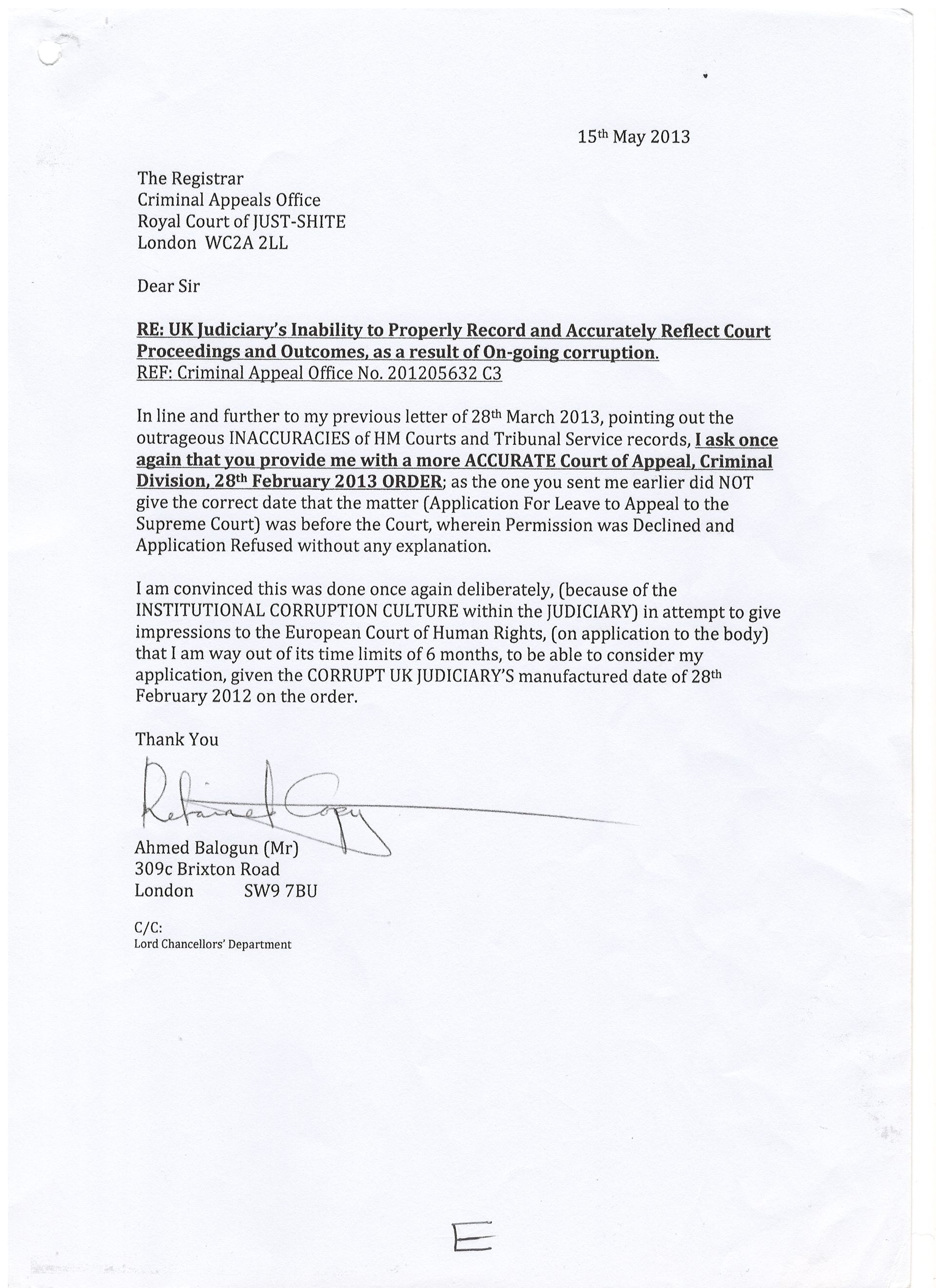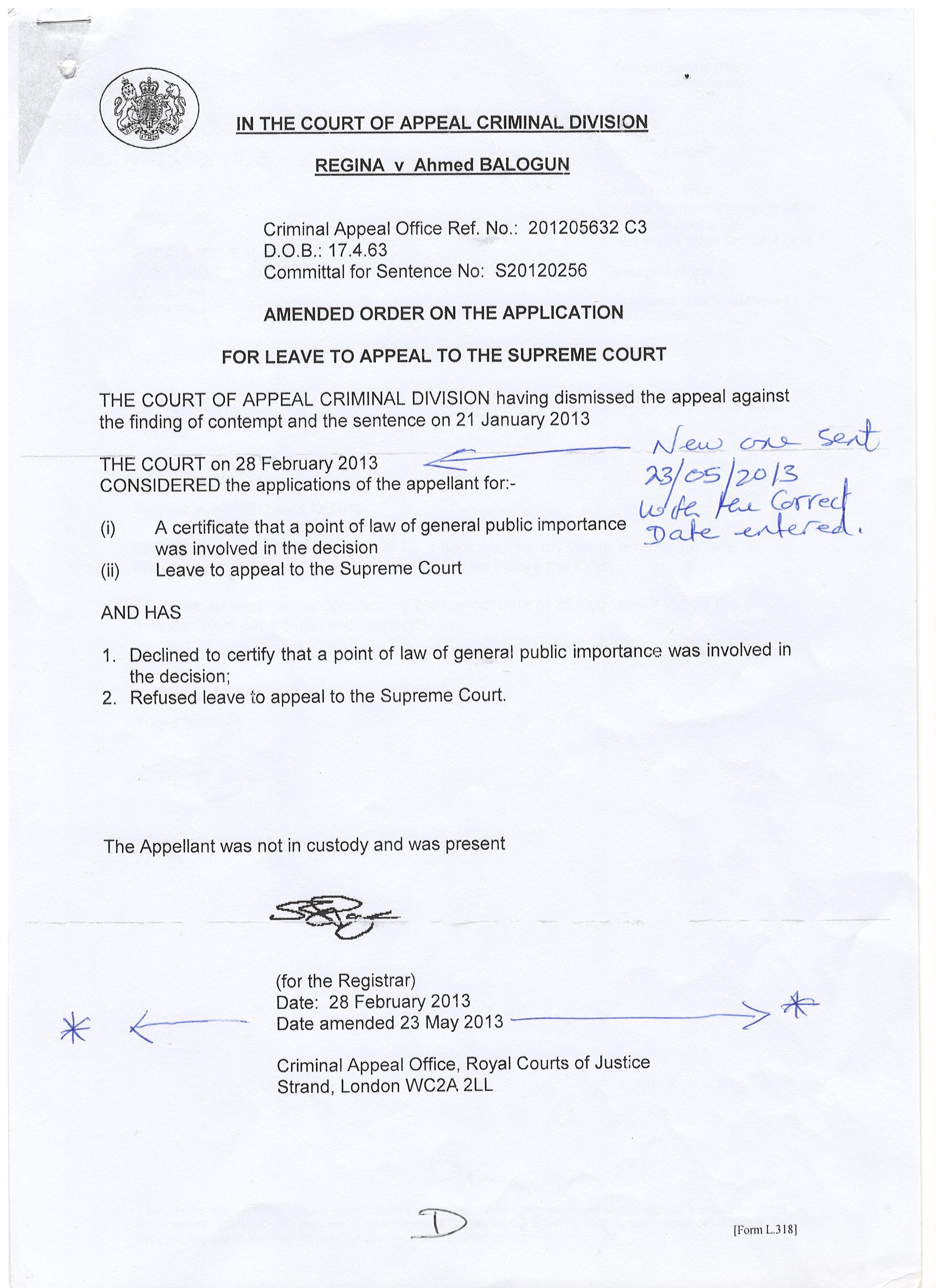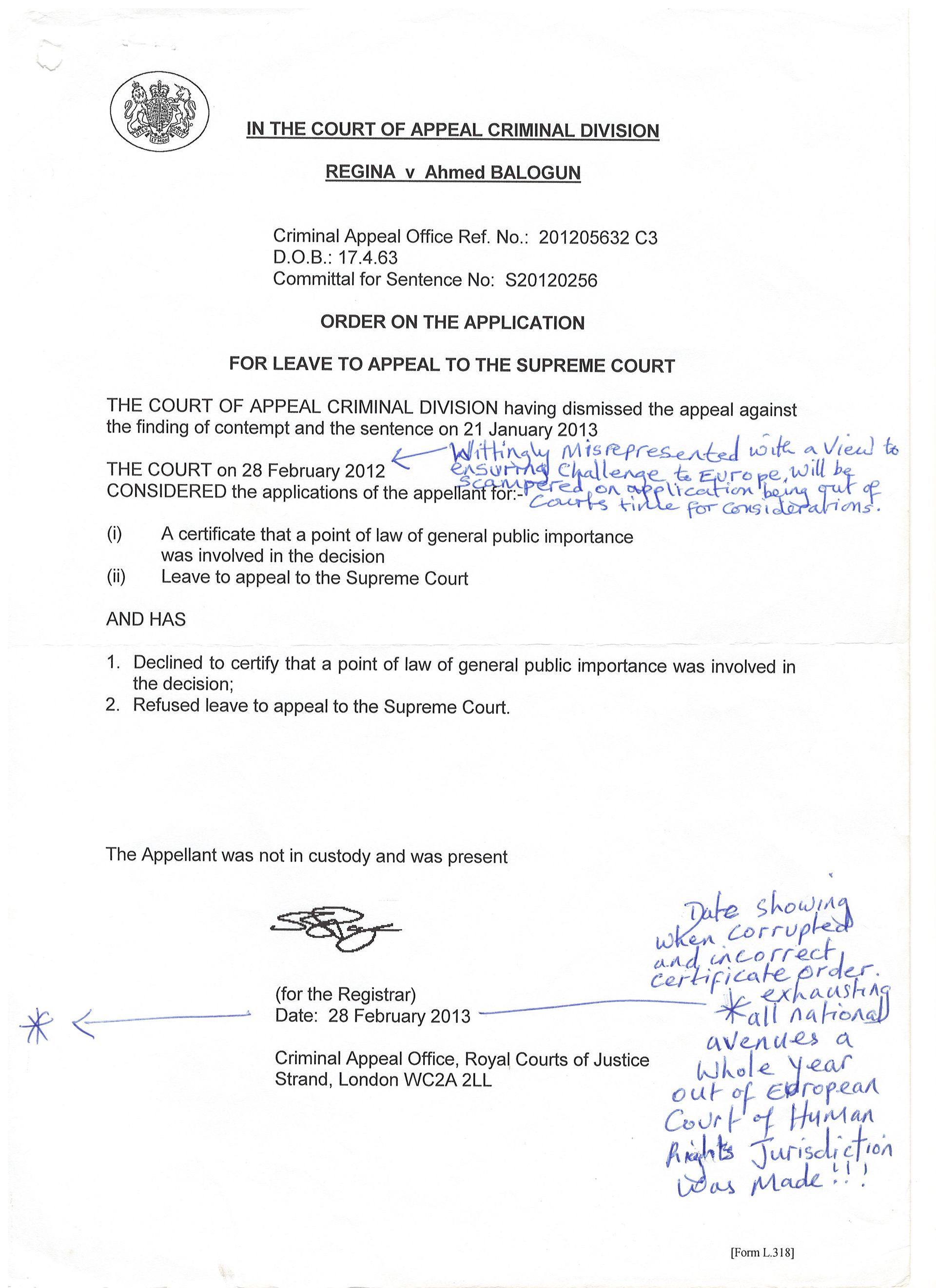Royal Court of Justice
New Paragraph
Citizenry Duty to Challenge Judicial Misconduct, Abuse of Power and Obstruction of Justice !!!
Challenging the corruption of the courts and judges is not the exclusive preserve of law enforcement agencies, but a right and duty of all concerned citizenries, because judicial corruption affects the integrity of the legal system, which serves the entire society. It is a broader societal issue, and its consequences can be far-reaching, influencing the fairness and legitimacy of the judicial process.
Citizens, in a democracy, hold the power to ensure that institutions act in the public’s interest. It is not just about having a legal system that functions, but having one that is fair and trustworthy. A corrupt judiciary can lead to widespread social unrest, economic instability, and the erosion of public faith in governance. Therefore, all citizens—whether directly involved in the legal process or not—have a stake in ensuring that corruption is tackled; using various criminal codes such as bribery, abuse of office, obstruction of justice, etc.,.
Law enforcement agencies and criminal codes are designed to address crimes after they occur, but they may not always have the capacity to monitor, detect, or address systemic issues of corruption within the judiciary. The public acts as an additional layer of oversight, with citizens often being the first to notice discrepancies, unethical practices, or corrupt behaviour. It’s crucial for the public to be vigilant and report corruption to prevent the erosion of the judicial system.
However, when those charged with managing the Criminal codes, (such as the Metropolitan Police Department) fail in their duty to discharge their functions on Corrupt Law-breaking privileged members of establishment, with the same rigidity, passion and dedication we see them apply it to the ordinary public, then the Court of Appeal became a natural battle ground for individuals in performance of their Civil Duty, to fearlessly take stock of their own Representations, (where able to) without a host of unnecessary legalese and refine niceties restraining Solicitors, Barristers and trained professionals from representing their clients forcefully.
The rule of law is a fundamental principle that asserts that all individuals, including those in positions of power, must be subject to the law. It ensures fairness, accountability, and protection of individual rights. Judges, as the stewards of the law, are tasked with upholding this principle. Corruption, misconduct, or abuse of power undermines this foundational principle. When judges engage in corrupt practices, they are essentially flouting the laws they are supposed to enforce. Their actions create a scenario where laws are no longer applied impartially but are instead influenced by personal gain or improper motivations. This erodes public confidence in the judicial system and in the fairness of legal outcomes, leading to a breakdown of the rule of law.
Harrow Crown Court's CONTEMPTUOUS DISREGARD for SECTION 7(1)(a) HRA 1998, SECTION 7(1)(b) HRA 1998 and Article 7 HRA 1998
Whilst observing proceedings from the public gallery at Harrow Crown Court, 20th July 2012, a Judge (Mr. Curtis Raleigh) flagrantly violated an Appellant victim of judicial violation's right to invoke SECTION 7(1)(b) HRA 1998 in the proceeding; astoundingly proclaiming that he, (the Judge) is the absolute law and authority, able to do as he wills; irrespective of whatever the law may say, or be written down to be.
I further observed from the public gallery, how throughout the proceeding the same judge (Mr. Curtis Raleigh) remarkably threatened to label the Appellant 'a Vexatious Litigant' (if he continues to insist on asserting his Defence Argument of having been the direct victim of unremediated FALSE IMPRISONMENTS committed by the Judiciary of England and Wales.)
The Judge then went on to breach SECTION 6(1) HRA 1998; SECTION 6(6) HRA 1998; SECTION 7(1)(b) HRA 1998; ARTICLE 7(1) HRA 1998; ARTICLE 7(2) HRA 1998; ARTICLE 6(1) HRA 1998; ARTICLE 5(1) HRA 1998 and ARTICLE 5(5) HRA 1998.
Aside from being a Social Policy Graduate with Policy Research and Advisory experience (Citizen’s Advice bureaux) I was equally conversant, (through many journeys into the court rooms as Secretary of Campaign for Truth and Justice Community Human Rights Affirmative Action Group) with how prevalent members of the Judiciary through-out UK courts interpret the laws as they wish, on account that the Public Galleries are usually empty and the trained and qualified legal professionals in the court rooms are mare subservient career path chasing individuals, who dare not raise their heads to challenge a Judge even as he displays utter contempt for the law; least of all to safe guard their ambitions to be a judge themselves one day.
Unlike most people who would have remained silent and docile in apathy to an wholly arrogant and ignoramus contemptuous disregard for the law by no lesser than a Judge itself, I arose as WITNESS from the Public Gallery to state that ‘… what I see taking place in presence in this court room is nothing short of corruption, because when a judge claims to be the
absolute authority of the law, independent of what the law actually says or how it is written and interpreted, then it represents a significant challenge in itself to the
principle of rule of law and an affront to the
law-making authority, such as a
parliament the country’s principle
legislature …’.
Despite Judge Curtis Raleigh’s DEFIANCE of the law as CONFERRED and laid down (by the legislative body) for him to interpret, I was asked to be detained and charged on allegation of Contempt of Court, 20th July 2012 and consequently bailed to return 6th August 2012 for the Trial Hearing before Judge H.H. Greenwood of the same court; who in order to provide cover for his colleague invariably as expected Found and Convicted for CONTEMPT in breach of SECTION 6(1) HRA 1998; SECTION 7(1)(b) HRA 1998; ARTICLE 6(1) HRA 1998; ARTICLE 6(3)(d) HRA 1998; ARTICLE 7(1) HRA 1998; ARTICLE 7(2) HRA 1998.
The Conviction carried an automatic right of Appeal to the High Court (Royal Court of Justice) and Subsequently an Appeal was lodged against the UNLAWFUL Conviction AND False Imprisonment, sighting as grounds of Appeal the Judiciary and its member's UNIMPEDED on-going brazen abuse of the Rule of law accordingly:
SECTION 6(1) HRA 1998; SECTION 6(3) HRA 1998; SECTION 7(1)(a) HRA 1998; SECTION 7(1)(b) HRA 1998; ARTICLE 7(1) HRA 1998; ARTICLE 7(2) HRA 1998; ARTICLE 6(1) HRA 1998; ARTICLE, 6(3)(d) HRA 1998.
'The Fish Rots from the Head Down' as Evidenced in the Failures of the Royal Court of Justice, to Perform its Function'
The dilemma for the Court is the simple argument that when a judge claims to be the absolute authority of the law, irrespective of what the law says, they undermine the rule of law, the democratic process, and the legitimate authority of Parliament. In sum it's a contempt for the law, as it denies the central role that laws, as crafted by the legislature, play in maintaining fairness, justice, and order. Talk less of when such Contempt are actually carried out, it disrupts the separation of powers and opens the door to judicial arbitrariness and lack of accountability, ultimately undermining public trust in the legal system. Therefore, such a stance not only represents a serious breach of judicial duty, but also threatens the very structure of democratic governance and the integrity of the legal system.
Judicial Over Reach
The core principle of modern democratic governance is the separation of powers among the three branches of government: the executive, the legislature, and the judiciary. Each branch has distinct and limited powers to prevent any one branch from becoming too powerful or overstepping its bounds.
The Legislature (Parliament) is entrusted with the power to make laws, representing the will of the people through elected representatives. The laws passed by Parliament are supposed to reflect the collective will, values, and needs of society.
The Judiciary, on the other hand, has the responsibility to interpret and apply the law in individual cases. Judges do not have the authority to create or change laws; they must apply the law as written by the legislature.
When a judge claims to be the "absolute authority" over the law, they are essentially asserting that they are not bound by the laws of the land as passed by the legislature, but rather by their own understanding, beliefs, or preferences. This is a direct challenge to the separation of powers, leading to a form of judicial overreach, where the judge exceeds their role as an interpreter and becomes, in essence, a legislator. This undermines the legitimacy of the legislative process and disregards the constitutional framework that places limits on judicial power.
Undermining the Democratic Process
In democratic systems, legislation is the product of a collective and deliberative process in which elected representatives of the people debate, negotiate, and pass laws. The legislature holds this responsibility because it is accountable to the electorate.
When a judge disregards or dismisses the intent of the law as enacted by Parliament and claims absolute authority over how it should be applied, they are essentially dismissing the democratic will of the people. A judge who acts as if their interpretation is the final word on what the law means, irrespective of legislative intent, creates a dangerous precedent that undermines the democratic legitimacy of laws passed by elected bodies.
By asserting their authority above the law as written, judges may nullify laws passed through democratic processes, creating a disconnection between the law and the people it is meant to serve.
Contempt for the Rule of Law
The rule of law is a cornerstone of democratic governance, and it requires that all individuals, including judges, are bound by the law. The law, as written by the legislature, is supposed to be the supreme guide in legal decisions.
If a judge claims to be above the law, this undermines the very idea that the law is the ultimate authority in a society. Instead, the judge places their own personal views or interpretations above the rule of law. This is contempt for the law because it suggests that the judge can ignore established legal frameworks or principles simply based on their own subjective interpretation, rather than the text or spirit of the law itself.
The rule of law asserts that no one is above the law, and when judges behave as though they are, it creates a legal environment where individuals may start to question whether the law applies equally to everyone, or whether it is subject to the whims of those who hold power.
Erosion of Public Trust in the Legal System
Public confidence in the judicial system is crucial for maintaining social order and ensuring that people trust that they will receive fair treatment under the law. When a judge claims absolute authority over the law, this can have a damaging impact on the public’s perception of the judicial system.
If the judiciary is seen as an institution where judges can act arbitrarily or in defiance of established laws, the public may lose confidence in the fairness and impartiality of the legal process. This perception can lead to disillusionment with the entire legal system, where citizens no longer believe that the law applies equally to all.
A judiciary that operates outside the bounds of the law may be viewed as unaccountable or out of touch with the people it is meant to serve, further eroding its legitimacy and undermining the democratic framework that relies on the rule of law.
Infringement on the Legislative Power of Parliament
In a democratic society, Parliament is granted the authority to pass laws, reflecting the will of the people and adapting the law to the needs of society. Judges are entrusted with interpreting and applying these laws in a way that is consistent with the legislative intent.
When a judge disregards or undermines the law as written, it represents an intrusion into the legislative process. The judiciary is not meant to rewrite laws but to ensure they are applied correctly. A claim to absolute authority by a judge not only disregards legislative decisions but also usurps the law-making power of Parliament.
Judicial activism, where judges assert an authoritative role in shaping the law according to their personal beliefs, undermines the democratic legitimacy of the legislative process. If a judge claims to be the ultimate arbiter of what the law "should" be, it may encourage other judges to do the same, leading to an unpredictable and undemocratic legal environment.
The Danger of Arbitrary Rule
A judicial system that allows judges to act as if they are beyond the law risks devolving into a system of arbitrary rule, where decisions are based on personal discretion rather than legal principles. The predictability of law—where people know the consequences of their actions because laws are clearly defined and applied consistently—is essential to a functioning legal system.
If judges are allowed to claim they are the ultimate authority on the law, irrespective of its text, it opens the door to arbitrary decisions, where legal outcomes depend on the subjective views or biases of individual judges. This creates legal uncertainty, where people can no longer trust that the law will be applied consistently or fairly.
This erosion of legal certainty undermines the very purpose of having a structured and codified legal system, where laws are public, transparent, and clear, and where they apply equally to all citizens, regardless of power or influence.
Judicial Accountability
One of the bedrock principles of modern judiciaries is judicial accountability—judges must be held to the same standards of law as the people they judge. The idea that judges are somehow above the law is contrary to the principle of accountability, and it removes mechanisms to ensure that judges are acting in accordance with established legal norms and ethics.
Parliamentary oversight and the power to make laws are vital elements of judicial accountability. If a judge claims to be above the law, they remove themselves from the scrutiny of Parliament or any other accountable body. In a system of checks and balances, no branch or individual should have the ability to act without oversight or regard for the authority of the other branches.
The Judiciary's Administrative Court Management Utilised to Wrong-Foot Appellants Away From Exercising their APPEAL Rights
Now following Conviction at trial (Harrow Crown Court, 6th August 2012 by Judge H.H. Greenwood) an Appeal was lodged 24th August 2012 with the convicting court.
See Exhibits:
In order to prevent the Application from getting into the Appeal Court for a Hearing of the Grounds of Appeal, FALSE assertions were made by the Appeal Court’s Administrative Management regarding the Application, with an ulterior subtle intent to deliberately Frustrating away the challenge to the Judiciary and its Judges violations.
For Appellants like me, the Judiciary’s Administrative Court Office weave all sort of excuses imaginable, so that it can appear justified in its refusal to process Appeal Documents, that appears to expose the Judiciary and its members corrupt practices.
So just as the corrupt Appeal Court Administrative Management had done before to frustrate away Appeal challenges grounded on Human Rights violations by the Judiciary, it sought again to resort to the same playbook utilised to prevent the Appeal against Highbury Corner Magistrates’ Ultra Virus Abuse of Judicial Powers in 2003, by claiming FALSELY that ‘the Court had no Jurisdiction’ to Hear an Appeal coming from a Magistrates’ Court.
What material the Appeal Court Administrative Management had in front of them to conclude that this Appeal challenging Conviction originated from a Magistrates’ Court would be interesting to unearth, because at no point in time did this mater ever entered a Magistrates’ Court.
Despite the conviction having emanated from a Crown Court, and never at any stage having anything to do with the Magistrate’s Court, the Appeal Court’s Administrative Management insisted ludicrously in sheer desperation that the conviction being challenged came from a Magistrates' Court and as a consequence the Royal Court of Justice (Appeal Court) had 'no jurisdiction to hear the Appeal'. Subsequently the entire Appeal documents were returned unprocessed, in anticipation that their action was sufficient to baffle and dispirit me from further pursuing the Appeal against the CONVICTION.
See Exhibits:
No doubt, this was meant to disorientate and leave me wasting time and focus trying to navigate a way pass their artificial barrier, whilst the Appeal time limitation period continue to run. Nonetheless after some time I was able to surpass by additionally requesting the Convicting Court to provide me with a proof copy of the Certificate of Conviction , which I was then able to enclose in the Resubmission of the Appeal Application a second time.
See Exhibits:
CORRUPT DISMISSAL CONTRARY TO THE RULE OF LAW, APPELLANT APPEAL HEARING, NOT CHALLENGED, OR ATTENDED BY THE CROWN PROSECUTION SERVICE OR ITS AGENTS
Prior to the Appeal entering court for a Hearing, I was sent a copy of a very scant and brief summary prepared for the court.
I noticed that the summary prepared for the court was a partial narrated view of account from the Judiciary and its Courts perspective. It made no mention or reference to any of my DEFENCE ARGUMENTS, with deliberate obscuring of words so as to make the contents of my worded arguments totally unintelligible to anyone who assumes the entire facts of accounts were being presented therein the summary, like an unadulterated complete overview, whereas that was not the case at all.
Indeed to lay it bare most conservatively, the judiciary and its Courts summary was overtly BIAS and tactfully drawn to omit any mention of the Article Right's violations and Abuses mentioned and argued in the submitted evidence to the court during the Trial Hearing:
SECTION 6(1) HRA 1998; SECTION 6(6) HRA 1998; SECTION 7(1)(a) HRA 1998; SECTION 7(1)(b) HRA 1998; ARTICLE 7(1) HRA 1998; ARTICLE 7(2) HRA 1998; ARTICLE 6(1) HRA 1998; ARTICLE 6(3)(d) HRA 1998 and ARTICLE 5(5) HRA 1998.
See Exhibits:
- See 28th January 2013, dated and Signed GROUNDS OF APPEAL Submitted to the Court ....Page1.........Page 2.............Page 3
On the Appeal Hearing date (21st January 2013 at the Appeal court, Criminal Division) I WAS THE ONLY PARTY TO THE HEARING PRESENT.
The Crown Prosecution Service (CPS) realising IT HAD NO LAWFUL CHALLENGE TO THE APPEAL AGAINST THE FALSE AND UNLAWFUL CONVICTION, ABSTAINED THE HEARING.
As a matter of fact, the underlying issue was that Article 7 HRA 1998 STATES NO PUNISHMENT OUTSIDE (WITHOUT) LAW and so whichever way one looks at it, it basically means a LAW-BREAKER CANNOT BE A LAW ENFORCER. As a consequence the Crown Prosecution Service realising IT HAD NO LAWFUL CHALLENGE TO THE EVIDENCE OF DIRECT CRIMINAL JUDICIAL LAW-BREAKING AND PERVERSIONS OF THE COURSE OF JUSTICE WHICH IT (CPS) KNEW WERE GOING TO BE PRESENTED TO PROVE THAT THE JUDICIARY AND ITS COURTS WERE INDEED LAW-BREAKERS WITHOUT ANY LAWFUL JURISDICTIONAL AUTHORITY AS PROSCRIBED BY ARTICLE 7 HRA 1998; the Crown Prosecution Service had no other choice but to signal its intent to ABSTAIN the Hearing from the off-set to the Court, OR RISK BEING FURTHER INCRIMINATED BY A DESPERATE JUDICIAL CABAL.
See Exhibits:
With the authorities responsible for defending convictions secured by the courts, or any Appeal against conviction PHYSICALLY ABSENT; there was effectively no legitimate lawful challenge to the Application Appealing against the FALSE and UNLAWFUL Conviction on the grounds submitted thereof.
Nonetheless the officiating judge on the day, acting contrary to the Rule of Law, as part of the elaborate Criminal cabal seeking to protect their friends and colleague’s in the legal fraternity PERVERTEDLY DISMISSED AN UNCHALLENGED, AND TOTALLY UNOPPOSED APPEAL APPLICATION in blatant contravention of ARTICLE 6(1) HRA 1998.
See Exhibits:
Calling Out the Appeal Court Judge’s (Witting or Unwitting) Committal of Conflictual Dual Roles of Judge and Prosecutor in Violation of Article 6 HRA 1998
Seeking to separate itself from any further embroilment in a matter that seemed to be escalating rather than quieting down, the Crown Prosecution Service indicated from an earlier stage of the Appeal Application process, signs of regretting the hasty secured Contempt Conviction and clearly wanted no more part in the saga. Further the CPS also indicated that neither was it going to send any Agent from its office, to participate in the looming Appeal that was being prepared
This in itself was an extremely important information worth knowing, because the party that argued profusely in securing the Conviction, now states it has no interest in being present at the Appeal Court Hearing, and has no intention to send even a junior staff over to attend the Hearing, in order to Defend the Conviction that was being challenged as UNSAFE.
In summary, it meant that the CPS had surrendered, just as if two Boxers were scheduled to fight in an arena and only one turned up. The one that turned up on the day win, for it was not a matter of Adjournment, or request for postponement. The CPS knew it could NOT Defend the Conviction and feared the fact that serious Judicial Criminal Perversion of Justice violations prompting the ACTION of Contempt would be unraveled before the of Courts.
However, seeking desperately to shield his Judicial colleague's irrational indiscretions from scrutiny and exposure to ACCOUNTABILITY the Judge who was meant to be the REFEREE judging on FACTS of law between the parties in an ADVERSARIAL System, suddenly decided that he was going to perform the functions of the absent Crown Prosecution Service, by CORRUPTLY Dismissing an Application won by default as it had no LAWFUL challenge on the day.
So in DISMISSING an UNCHALLENGED and totally UNOPPOSED Appeal Application at a Hearing where no COUNTER ARGUMENT was raised in refute of the Oral submissions thereof, the presiding Judge wittingly or unwittingly assumed conflicting Duo Roles of Judge and Prosecutor; giving rise to a further legitimate right to Appeal the Judge’s corrupted decision (to dismissing an unchallenged and unopposed Appeal Hearing).
THE APPEAL COURT SPECIALITIES OF FABRICATION AND FALSE REPRESENTATION OF ACTUAL RECORDS OF COURT PROCEEDINGS
Ludicrously, Permission by the Appeal Court to Appeal its corrupted decision to the UK's Supreme Court first had to be obtained and unsurprisingly that Permission was always going to be rejected without any questions asked, or proper legal process followed and adhered to.
For the Judiciary the whole matter jab straight at the heart of the British Justice System and stand to expose irrefutable GROSS Judicial Corruption culture, Hypocrisy and unfettered Lawlessness running unimpeded from the Magistrates’ lower Courts below, right the way up to the Judges and court rooms of the High Courts including the Upper Appeal Court itself.
As we saw earlier, the culture of corruption is so ingrain and endemically rife within the British Justice system, that even a Judge in the Royal Court of Appeal felt secure in the total lack of oversight, checks and accountability, in the performance of their duty, to therefore be able to DISMISS an unchallenged Application won by default on the apparent withdrawal and non participation, including attendance of the Crown Prosecution Service in the Appeal.
The Application to the Appeal Court was an opportunity for the Judiciary to save itself from shame and disgrace by REPROACHING the disgraceful behaviours of its Courts and Judges evidenced in the materials submitted. Rather, the Royal Court of Appeal made no effort to equitably address the issues, nor arrest it. Instead its Judges openly breached the Process of Due Procedures of law to aid and facilitate the protection of their Judicial colleagues, who failed to apply and interpret the law has it is written, without fear or favour.
See Exhibits:
With the Appeal Court unwilling to entertain an Application Appealing its corrupted decision to the Supreme Court, I sought a copy of the Court’s stated reason committed in writing and on my request for these, I discovered it filled with FABRICATIONS AND FALSE ACCOUNT REPRESENTATIONS OF THE JUDICIAL RECORDS OF THE ACTUAL COURT PROCEEDINGS.
As a consequence of my unrelenting pressure and persistent challenges to it and its members CRIMINAL conducts; the Royal Court of Justice, Appeal resorted to DOCTOR with FALSE and INACCURATE information, Court Records of Proceedings, including those of the Judges Summing-Up and Verdict of the Hearing.
Combing through a copy of the transcripts sent me, the Royal Court of Justice, Appeal Court OUTLANDISHLY INVENTED a Justice Jackson, Mr Justice Nicol and Judge Beaumont QC. (The Recorder of London) as being seated in the Adjudication. It was a fabricated attempt to give the impressions that the Appeal went before three Judges, who seating in their Judicial capacity presided over the Hearing, wherein they were flatly NOT present and should never have been implied, were it not that there had been a deliberate intent to DECEIVE after PERVERTING THE DUE COURSE OF JUSTICE.
My noticing and picking up on these must have come as a shock to the Court, which wasn’t expecting me to request a copy of the Court Transcripts for my filing. It thought ordinarily, only the trained legal professionals would request such a thing, and so by mere luck, I was able to have a Hard Copy evidence of the Appeal Court fabricating Judges to have sat in on proceedings which they were never part of.
See Exhibits:
PERVERSION OF THE DUE COURSE OF JUSTICE WITH FURTHER WITTINGLY/UNWITTINGLY INSERTED PREJUDICIAL MISREPRESENTATION OF INFORMATION ON COURT DOCUMENTS
So the judiciary and its Courts fabricated records of the Appeal Court Judgments, with named judges totally alien and unconnected to the Appeal application process as having been present and taken part in the Procedural/Hearing.
The intent was to deceive an independent observer into inferring from its Court documents that the Appeal Application was provided the full route of access to the FIRST JUDGE who refused and in spite of his refusal, (the appeal) was then further allowed to go before THREE JUDGES who yet only on careful deliberation REFUSED THE APPLICATION FOR PERMISSION TO APPEAL TO THE SUPREME COURT, when actually, it wasn’t so at all.
It had NOT been anticipated, I would pick up on the discrepancies, because even professional lawyers all too often aid and abet the Judiciary and its Courts in deception, by turning a blind eye or deliberately failing to point out wrong doings and inaccuracies for fear of not wanting to get on the wrong side of Judges who make careers out of intimidating both junior and senior Lawyers, Barristers and Prosecutors, lacking in courage to make Judges know that they are ‘Non Other Than A REFEREE’.
The Royal Court of Justice, Rife With Corruption, Arrogant Hypocrisy and UNACCOUNTABLE Courts and Judges
The United Kingdom still being a member of the European Community at this time, the Appeal Court knew very well that if I was still dissatisfied with the Adjudication process I received in the UK, I could take the case up to the European Court of Human Rights in Strasbourg, Europe.
However, it was equally very aware of the process and most important of all, the Time Limitation Period, set as no more than 6 months ADMISSIBILITY time window after exhausting all Final Domestic Remedy route in home country.
In order to prevent, mortally frustrate and delay any anticipated intent to take the Corruption of the Judiciary of England and Wales, up in complaint with the European Court of Human Rights, the Appeal Court deliberately set about a course to sabotage the ADMISSIBILITY prospect of such an application to the European Court of Human Rights.
Well aware that formal Applications of Complain to the European Court of Human Rights had an admissibility time window of Six Months, (from the date entered and showing on the Certificate of Dismissal in last Domestic Adjudication) the JUDICIAL AUTHORITIES of England and wales, DELIBERATELY entered FALSE and INACCURATE dates to make the intended Application in complain to the European Court of Human Rights automatically INADMISSIBLE and out of time by one whole year.
The date that it was entered was a wholly fictional and wrong date far from the actual date which should have been entered, if a PERVERSION OF THE DUE COURSE OF JUSTICE had not been intended.
See Exhibits:
I had to take over three months of focus and dedication that I should have spent drafting my Application of Complaint to the European Court of Human Rights; away into writing complaints and ferrying up and down each day to the Appeal Court, or writing in complaint to its senior management about the Courts ATTEMPTED CRIMINAL DECEPTION
Nonetheless, my insistence that the JUDICIARY furnishing me with accurate information, relating to my Adjudication showing on the Certificate of Last Domestic Remedy, (Seeking Permission to Appeal to the Supreme Court) the Judiciary in May 2013 eventually RESCIND its initial FALSE Documented information and provided an AMENDED Certificate of Last Domestic Remedy (Refusing Permission to Appeal to the Supreme Court) with the accurate date 28th February 2013 showing (rather than the previous which had made me automatically way out of time to submit anything before I even attempted doing so).
See Exhibits:
